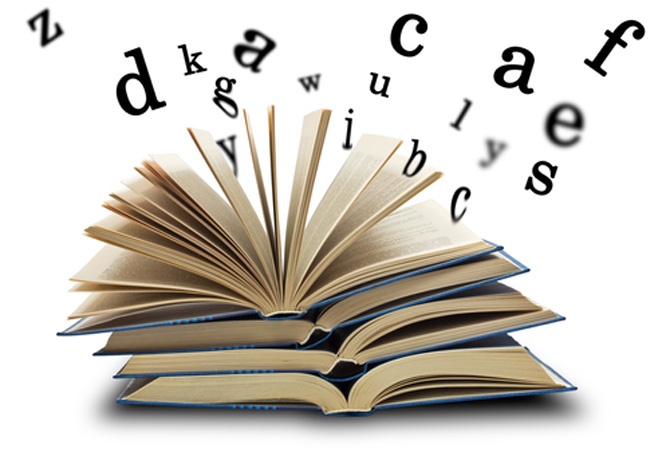ADVERTS
Ortografia: Um Guia Completo sobre a Arte de Escrever Corretamente
A ortografia é um dos pilares fundamentais da língua portuguesa, representando o conjunto de regras que determina a forma correta de escrever as palavras. Origina-se dos termos gregos “ortho” (correto) e “graphia” (escrita), literalmente significando “escrita correta”.

Compreendendo a Ortografia
A ortografia não é apenas um conjunto arbitrário de regras – é um sistema desenvolvido ao longo de séculos, que busca padronizar a escrita em todos os países que utilizam a língua portuguesa. Esta padronização é essencial para garantir a comunicação efetiva entre falantes do português em diferentes regiões e países.
ADVERTS
O Alfabeto Português
O alfabeto atual da língua portuguesa possui 26 letras:
A, B, C, D, E, F, G, H, I, J, K, L, M, N, O, P, Q, R, S, T, U, V, W, X, Y, Z
Uma das mudanças mais significativas dos últimos anos foi a incorporação oficial das letras K, W e Y, que anteriormente não faziam parte do alfabeto português, mas eram utilizadas em casos específicos como nomes próprios e palavras estrangeiras.
A Evolução da Ortografia: Os Acordos Ortográficos
ADVERTS
A história da ortografia portuguesa é marcada por diversos acordos e reformas que buscaram harmonizar a escrita entre os países lusófonos. Vejamos os principais marcos:
Principais Acordos
- 1931: Primeiro acordo ortográfico, que tentou unificar os sistemas ortográficos de Portugal e Brasil, mas não obteve êxito completo.
- 1943-1945: Implementação de novas regras no Brasil.
- 1971 (Brasil) e 1973 (Portugal): Novas reformas que buscaram aproximar ainda mais as duas variantes.
- 1975: Tentativa de acordo que não foi oficialmente aprovada por questões políticas.
- 1986: Encontro no Rio de Janeiro com representantes de todos os países lusófonos, resultando em uma proposta que não foi implementada.
- 2009: Início da vigência do Novo Acordo Ortográfico, que trouxe mudanças significativas para unificar a escrita em todos os países de língua portuguesa.
Desafios Comuns na Ortografia
Um dos aspectos mais desafiadores da ortografia portuguesa é a existência de diferentes letras que podem representar o mesmo som. Algumas das dúvidas mais frequentes incluem:
Casos Comuns de Dúvida
- Uso de X ou CH
- Emprego de S, Z ou C
- Utilização de SS ou Ç
- Distinção entre G e J
- Uso do H inicial
- Emprego de L ou U no final das palavras
Como Desenvolver uma Boa Ortografia
Dicas Práticas
- Leitura Regular: A leitura constante ajuda a fixar a grafia correta das palavras de forma natural.
- Consulta ao Dicionário: O dicionário é uma ferramenta fundamental para esclarecer dúvidas ortográficas.
- Atenção às Regras: Algumas regras ortográficas podem ajudar a predizer a grafia correta de muitas palavras.
- Prática de Escrita: Quanto mais se escreve, mais familiaridade se desenvolve com a ortografia.
- Revisão Cuidadosa: O hábito de revisar textos ajuda a identificar e corrigir erros comuns.
A Importância da Ortografia no Mundo Atual
No contexto atual, com a crescente importância da comunicação escrita em meios digitais, o domínio da ortografia tornou-se ainda mais relevante. Uma escrita correta:
- Facilita a compreensão da mensagem
- Confere credibilidade ao texto e ao autor
- Demonstra cuidado e profissionalismo
- Evita mal-entendidos na comunicação
Recursos para Aperfeiçoamento
Ferramentas Modernas
- Corretores Ortográficos: Auxiliam na identificação de erros, mas não substituem o conhecimento das regras.
- Aplicativos de Estudo: Existem diversos apps focados no aprendizado da ortografia.
- Sites Especializados: Plataformas online oferecem exercícios e explicações sobre regras ortográficas.
- Dicionários Online: Facilitam a consulta rápida em caso de dúvidas.
Considerações Finais
A ortografia é uma convenção social que padroniza a escrita e facilita a comunicação entre todos os falantes da língua portuguesa. Embora possa parecer desafiadora inicialmente, com prática e dedicação, é possível desenvolver um bom domínio das regras ortográficas.
O importante é manter uma postura de aprendizado contínuo, consultando fontes confiáveis quando surgirem dúvidas e praticando regularmente a escrita. Lembre-se: a ortografia não é apenas um conjunto de regras a serem decoradas, mas uma ferramenta fundamental para uma comunicação clara e eficiente.
